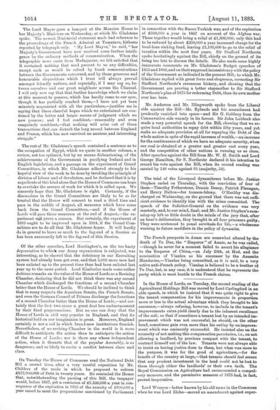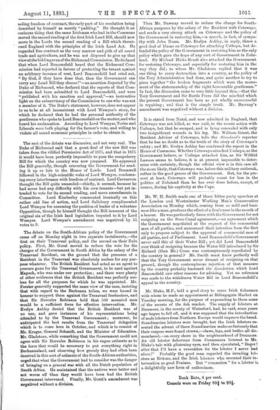Lord Wemyss—better known by his old name in the Commons
when he was Lord Elche—moved an amendment against super-
seding freedom of contract, the early part of his resolution being described by himself as merely "padding." He thought it an ominous thing that the same Irishman who had in the Commons moved the second reading of the first Irish Land Bill, should now move in the Lords the second reading of a Bill which threat- ened England with the principles of the Irish Land Act. He regarded free contract as the very marrow and pith of all sound trade and agriculture, and he was not disposed to give up that view at the bidding even of the Richmond Commission. He declared that when Lord Beaconsfield heard that the Richmond Com- mission had reported in favour of protecting the tenant against an arbitrary increase of rent, Lord Beaconsfield had cried out, "By God, if they have done that, then the Government can carry any Land Bill they choose!"—an assertion disputed by the Duke of Richmond, who declared that the reports of that Com- mission had been submitted to Lord Beaconsfield, and were "published with his sanction and approval,"—an instructive light on the subserviency of the Commission to one who was not a member of it. The Duke's statement, however, does not appear to us to be at all inconsistent with Lord Wemyss's story, for which he declared that he had the personal authority of the gentleman who spoke to Lord Beaconsfield on the matter, and who heard his exclamation. According to Lord Wemyss, Tories and Liberals were both playing for the farmer's vote, and willing to violate all sound economic principles in order to obtain it.



































 Previous page
Previous page